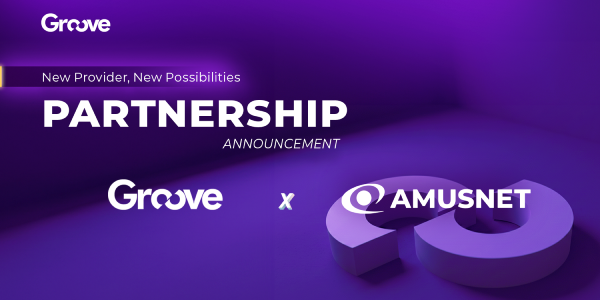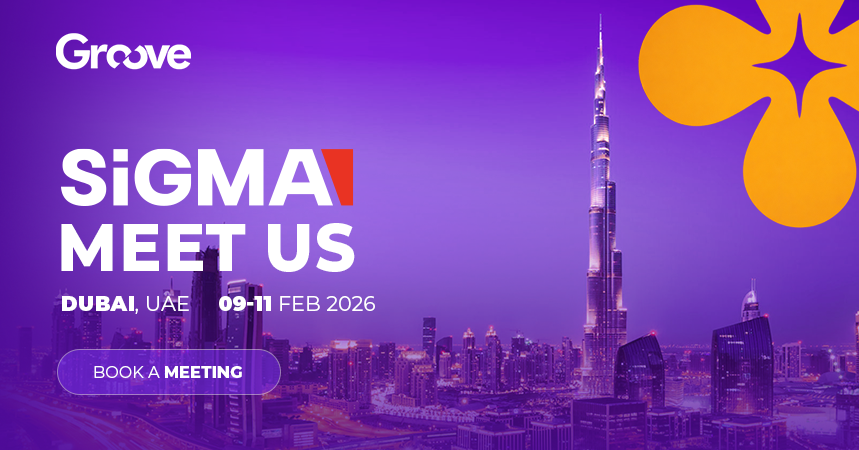Brazil iGaming Regulation 2025
2025 is the year of transition for Brazil's online gambling. Having waited years, regulation finally arrives and with it, a whole new world of opportunity for operators eager to tap into Latin America's biggest market.
But it's not just opening shop. The licensed iGaming market in Brazil is a new set of rules, new competition, and a unique set of customers. Regardless of whether you're a seasoned international operator or just exploring Brazil for the first time, this guide condenses what's new, what you need to know, and how to thrive in this new market.
Why Brazil? Numbers Tell the Story
Brazil is not just another marketplace - it's the marketplace to be seen. Operators worked for years in a free-wheeling world with loose regulation, working around and in grey areas for enforcement. Those days are over. Regulation is now fully underway, Brazil is now opening its doors to genuine, licensed operators - a new era of commercial opportunity, consumer protection, and innovation. The size, technology-oriented consumers, and historical gaming enthusiasm make Brazil a high-growth market that few serious iGaming operators can afford to overlook.
- Population: Over 215 million people, with a young, technology-oriented population. Brazil is among the top internet-consumption countries worldwide, and its growing middle class is increasingly opting for online entertainment venues.
- Mobile Gaming Growth: More than 80% of Brazilian online players use mobile phones to access gambling websites, and mobile optimization is no longer a choice but a requirement as part of your strategy. The competitive penetration of smartphones and low-cost mobile data plans fuel growth, particularly in cities like São Paulo, Rio de Janeiro, and Belo Horizonte.
- Pre-regulation iGaming demand: Prior to full regulation, Brazil's underground web online gaming market was growing rapidly, with over R$12 billion (~$2.3B USD) worth of annual demand. Despite the ambiguity on the law, foreign brands thrived with the use of offshore licenses and hard-hitting affiliate marketing. The demand is clearly there - now it's simply a matter of doing it correctly.
- Sports-mad culture: Brazil breathes and exhales football. From neighborhood teams to global titles, football fan culture has become the nature of their identity. Sports betting is the natural outgrowth of that fixation, and it's growing fast. Brazilian customers, in fact, are increasingly enthusiastic about live bets, fantasy games, and football-centric gaming experiences.
What Changed in 2025? A Quick Overview of Brazil’s iGaming Law
The long-awaited entry into force of Law No. 14.790, signed in late 2023 and fully applicable in 2025, revolutionized the Brazilian online gaming space. Game providers now finally have a clear path to offer regulated online games and sports betting products to Brazilian players under one national framework.
So what does the new law allow - and prohibit?
Regulated Activities today include fixed-odds sports betting (both online and retail) and online games of chance such as slots and table games, and, more recently, since 2025, betting exchanges - but these are under stricter scrutiny and licensing obligations.
On the regulatory side, expect strict entry conditions. Operators will be required to pay a five-year license fee of R$30 million (around $6M USD) and establish a legal presence in Brazil. The tax on gaming revenue is 12% of GGR (Gross Gaming Revenue), and the players are taxed 15% on the winnings above a cut-off. In addition to this, Brazil's regulator demands rigorous responsible gaming policies, such as stricter KYC verification, deposit restrictions, and self-exclusion facilities.
Notably, Brazil’s legislation defines a hard line against non-compliant activities. Any operator that does not possess an up-to-date license will be blacklisted. Unauthorized marketing is subject to penalty, and credit betting is prohibited outright.
In short, Brazil has gone grey to green - firmly stated, investor-friendly policy based on respect for both compliance and customer protection.
How to Enter Brazil’s iGaming Market
Success in Brazil doesn’t come from just ticking compliance boxes. It’s about truly understanding the market, building trust, and crafting an experience that feels Brazilian from top to bottom.
1. Localize Everything
Brazilians expect a tailored experience and anything less risks losing players to more localized competitors. That means more than simply translating your website. You’ll need a full suite of culturally attuned features:
Your entire platform needs to be in Brazilian Portuguese (not European Portuguese), and local-language live chat or support isn't optional - it's a necessity.
Entertainment-wise, games that are localized to Brazilian culture and preferences, such as crash games, football slot games, and live dealer roulette—will perform much better than generic global content. Partnering with a provider that offers reliable Casino Game Aggregation helps ensure your content library is always fresh and relevant to regional tastes.
One of the most decisive elements? Payments. Brazil is a fintech pioneer, and actors heavily rely on immediate, trustworthy channels like Pix, Boleto Bancário, and other local e-wallets. Being connected with a Brazilian PSP (Payment Service Provider) will help you process payments efficiently and reduce user churning.
Tip: Integration with a trusted PSP can greatly reduce payment abandonment rates and improve onboarding speed.
2. Know the Players
It's really about knowing the Brazilian player mindset. These players aren't taking risks – they're enjoying a fun experience. They're mobile-first, hyper-social, and love interaction.
Streamers and social media influencers exert enormous control over betting and platform trends. Brazilian players look at Twitch or YouTube casino streamers and want platforms to be engaging, community-driven, and rewarding. Bonuses are welcome, but they alone won't do it. It's the experience overall - from customer service to in-game events that keeps them.".
"Brazilians are passionate players, they require more than a spin or bet. They need a show," claims Rafael M., an affiliate from São Paulo.
3. Win with Responsible Gaming and Transparency
Brazil's regulators are taking player protection seriously, and so are players. Responsible gaming is not simply a regulatory issue, it's an advertising advantage.
Successful operators in Brazil will be those who are open about odds and payout rates, clearly display terms and conditions, and make tools for self-exclusion and deposit limits stand out in clear, accessible places. Honesty builds trust and trust builds loyal players.
Showing on Day 1 that you're a brand to be trusted isn't just about staying out of trouble - it's the way you build the foundation for sustainable growth.
Don’t Go It Alone: Partnerships Are Key
If you’re new to Brazil, partnerships with local experts are not just helpful - they're a game-changer. Entering this market involves more than just translating your platform or tweaking your game portfolio. It requires a nuanced understanding of Brazilian culture, financial systems, and regulatory demands. That’s where local partners come in.
With the right iGaming platform provider, you will spend less development time by having Brazil-ready integration features such as Pix, Boleto, and native BRL (Brazilian Real) support. Latin America-friendly content from game providers will put you in front of your audience as soon as possible with relevant themes and gameplay preferences. Visibility-wise, affiliates with already established Brazilian traffic sources can really boost your acquisition efforts from the get-go.
No less important is your legal team. Brazil's new regulator, ANJL, has its own compliance and licensing regime. Legal advisers familiar with ANJL can advise you on how to avoid delay, reduce risk, and navigate the bureaucracy that often goes along with newly regulated markets.
Pay attention to:
- iGaming platforms offering Brazil-ready integration (Pix, Boleto, BRL support)
- Game providers with LatAm-relevant content
- Affiliates with established Brazilian traffic sources
- Experienced legal experts in ANJL (the new regulatory commission)
What to Expect in 2025 and Beyond
The groundwork has been laid, but Brazil's iGaming journey is far from over. The phase two expansion is already underway, and forward-thinking operators should be preparing themselves for what is ahead.
- The regulator is not slowing down, and by Q4 2025, we will be able to count dozens of new licenses granted to both international and local operators. This will mean more competition, but more momentum and market maturity as well.
- Gen Z within Brazil is embracing esports betting at a rapid pace, particularly for games like Free Fire, CS:GO, and League of Legends. Platforms with esports odds and engaging content will attract more and more fans from young punter
- The government is clamping down on advertising and affiliate practice. Look out for more stringent disclosure laws, licensing of affiliates, and restrictions on promotional methods. Make sure your affiliate arrangements are compliant now.
- While Brazil has adopted a national system, certain individual states could have localized legislation or enforcement processes. Operators must be vigilant for this, particularly when operating in targeted territories.
Brazil is no stagnant market - it's dynamic, evolving, and teeming with potential. Those who are able to stay agile, current, and proactive will be well positioned to achieve long-term success.
Want Help Getting Started?
The opportunity in Brazil is real but only for those who plan carefully, invest in localization, and respect the regulatory framework.
If you’re ready to play by the rules, build strong local connections, and deliver value to players, Brazil’s iGaming market could become your most profitable territory yet.
Groove Technology offers end-to-end support to operators entering newly regulated jurisdictions - like Brazil. From localized gaming and payment products to regulatory knowledge and marketing services, we've got you covered.
Contact us today and learn how we can help you open up and stay compliant in Brazil.






